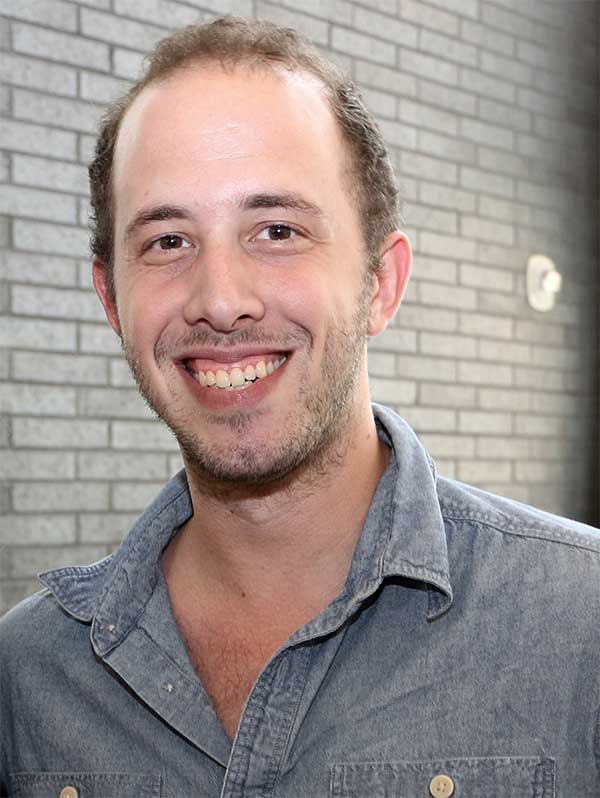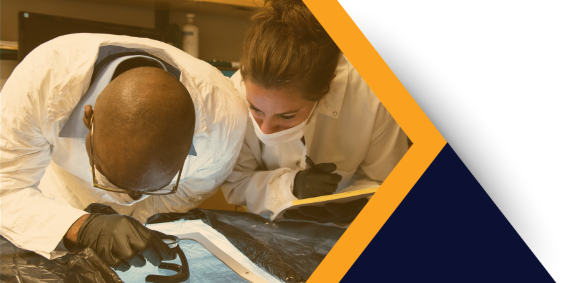Meet Daniel Becker, Ph.D.
Award-winning ecologist pursues postdoctoral research in avian infectious disease dynamics
Did you know that migration can cause dormant infections to reactivate in songbirds?
“We’ve known for several decades now that most emerging infectious diseases originate in animals, especially wildlife,” said Daniel Becker, Ph.D., a former fellow in the Intelligence Community (IC) Postdoctoral Research Participation Program. The IC Postdoctoral Program offers scientists and engineers from a wide variety of disciplines unique opportunities to conduct research relevant to the Intelligence Community.
Many of these wild ‘reservoir hosts’ undertake long-distance migrations between habitats to breed and winter. A reservoir host is a primary biological host that harbors a pathogen but often shows no ill effects and serves as a source of infection. “My postdoctoral research applied several modeling techniques to assess how migratory behavior shapes infectious disease dynamics in these reservoir hosts, with a particular focus on songbirds,” he said.

Daniel Becker
While earning his undergraduate degree in anthropology and global health from Bard College, Becker became increasingly interested in infectious diseases, especially those that are zoonotic, or come from animals. This led him to pursue training in population ecology and wildlife biology, culminating in a Ph.D. specifically focused on the ecology of infectious disease from the University of Georgia in 2017.
By October 2018, Becker was appointed as a fellow in the IC Postdoctoral Program to the Ketterson laboratory in the Department of Biology at Indiana University. Under the mentorship of Ellen Ketterson, Ph.D., Distinguished Professor of Biology, Becker participated in research activities that were aimed at understanding the ecological and evolutionary factors that shape where, when and in what wild species, such as songbirds, zoonotic pathogens are most common.
“Many songbirds can harbor zoonotic pathogens such as those that cause Lyme borreliosis, West Nile encephalitis, salmonellosis and influenza in humans, so understanding the contexts under which migration makes these infections more common in birds could help us predict and preempt human disease risks,” Becker said.
Through a combination of statistical and theoretical modeling, Becker’s IC Postdoctoral research resulted in four remarkable conclusions: First, that birds with more diverse spring migrations are more likely to transmit certain pathogens to ticks. Second, that urbanized migrants might be more resistant to infection. Third, that migration can cause dormant infections to reactivate and reach extremely high infection prevalence. Finally, that exposure of songbirds to even low levels of artificial light at night in urban habitats can amplify these kinds of relapse events.
“Research on the ecology of infectious disease is extremely impactful to society because unfortunately, zoonotic pathogens can carry huge public health and economic burdens,” Becker said. His research within the IC Postdoctoral program was especially important in the context of environmental change, as many migratory animals are using urban and agricultural habitats as stopover sites or wintering grounds and even abandoning migration to form sedentary populations. “If we know the kinds of habitats or times of year when wildlife reservoir hosts are more likely to harbor infections, or more readily shed pathogens, this can help us prevent spillover events by limiting wildlife-human contact,” he said.
During his time as an IC Postdoctoral fellow, Becker gained new expertise in machine learning and theoretical models of migration and infectious disease. He was also exposed to the broader world of movement ecology and ornithology, which provided him new perspectives in ecology and evolutionary biology.
“The experiences and skills I gained during my IC Postdoctoral fellowship will carry over into my research program at the University of Oklahoma, where I started as an assistant professor in August 2021,” he said. “I aim to continue ecological and computational studies of land conversion, animal movement and zoonotic pathogens in several songbird and bat species. The statistical and theoretical tools obtained during this fellowship add to a general skillset for studying the ecology and evolution of infectious disease.”
Taking the initiative during his two-year fellowship, Becker published more than 30 first author or coauthored peer-reviewed manuscripts in publications such as Proceedings of the Royal Society B, Trends in Ecology & Evolution, Transboundary and Emerging Diseases, Journal of Animal Ecology and Animal Migration.
Additionally, he presented his research at several conferences during his fellowship, including the 2019 Annual Meeting of the Society for Integrative & Comparative Biology, the 2019 Ecology & Evolution of Infectious Disease Conference, the 2019 Ecological Society of America Annual Meeting and the 2020 Annual Meeting of the Society for Integrative & Comparative Biology.
When invited to give several seminars at different universities during his fellowship, Becker obliged, expanding his professional network. These included seminars at Indiana University, The Ohio State University, Indiana State University, University of Oklahoma, University of Arizona, Appalachian State University, Wright State University and New Mexico State University.
Finally, for his research conducted during his IC Postdoctoral fellowship, Becker was the honored recipient of the Sidnie Manton Award from the British Ecological Society in 2020. This award is given annually to the top review paper published in the Journal of Animal Ecology by an early-career researcher. “I was also awarded a grant from National Geographic as the lead investigator to study vampire bat movement, diet and rabies virus dynamics in Belize, where I have been conducting long-term research on bats and their zoonoses since 2014.”
When asked if he would recommend the program to others, Becker said, “Certainly. The IC Postdoctoral program gave me a great deal of academic freedom and advanced my career in ways that wouldn’t have been possible without an independent and flexible fellowship.”
The Intelligence Community Postdoctoral Research Fellowship Program is funded by the Office of the Director of National Intelligence (ODNI) and managed by the Oak Ridge Institute for Science and Education (ORISE) under an agreement between the IC and the U.S. Department of Energy (DOE). ORISE is managed for DOE by ORAU.



